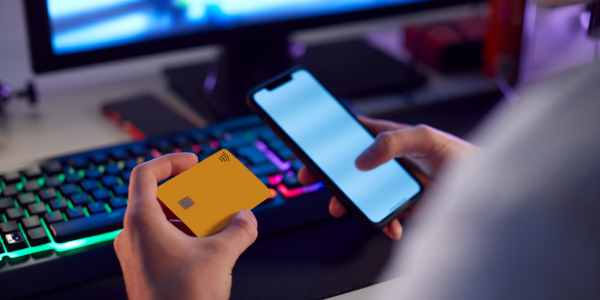
How personal gambling account data can inform safer gambling initiatives
Article provided by IAGR partner, Greo Evidence Insights
This article is inspired by the upcoming IAGR and IMGL Rome conference panel discussion, ‘Responsible gambling programs and the use of player data’.
The session will be moderated by Elizabeth Lusk, Greo’s
View the full conference program.
Gambling operators can analyze personal gambling account data to identify people who are at risk of experiencing, or those currently experiencing, gambling-related harms.
Personal gambling account data, or “player data”, refers to the information that is collected and stored when people gamble online using a personal account. This data can include information such as the amount of money a person deposits, wagers and losses, the types of gambling products people engage in, and how much time people spend gambling.
How can regulators encourage operators to use personal gambling account data to strengthen their initiatives that protect against the harms related to gambling?
Recently published gambling research
Below is a selection of resources that may help to inform regulatory approaches to personal gambling account data and safer gambling:
- A review of research using behavioural data provided by gambling operators
- Age and gender influence gambling intensity among Norwegians who use electronic gaming machines
- Predicting problem gambling with machine learning models: Insights from player tracking data across three countries
- Investigating positive play using OLG player survey data: A secondary analysis
- Examining hard vs. soft forms of limit setting in electronic gaming machines (EGMs)
- Exploring the potential of player-tracking systems in reducing gambling-related harm
Evidence-informed action
Below are examples that offer insights into the strategies that some jurisdictions are using in relation to personal gambling account data and safer gambling.
New Jersey (United States)
In 2023, the Division of Gaming Enforcement in New Jersey announced plans to work with online gambling operators to identify people at-risk for experiencing gambling-related harm. Operators are now required to analyze electronically maintained account data to determine if a person is showing signs of gambling-related harm. In addition, people in New Jersey must consent to have their gambling monitored and recorded to gain access to online gambling platforms.
Finland
As of January 1, 2024, Veikkaus, the state-owned monopoly in Finland, became the first operator in the world to require identification for all digital and physical gambling, including scratch cards. The new rules came into effect as part of the 2021 Lotteries Act. Personal identification allows Veikkaus to facilitate age limit monitoring and to effectively identify risky gambling based on data and intervene. These changes also allow people to access their complete gambling history.
- Finnish gambling regulations introduce mandatory player identification in 2024
- The first day of 2024 is a historic moment in Finnish gambling, when all Veikkaus gambling games require identification
Netherlands
The Dutch gambling regulator Kansspelautoriteit (KSA) has made changes to their Responsible Gaming Policy Rule, which requires operators to be stricter when it comes to monitoring people’s gambling behaviour in real-time, 24 hours a day. The changes came after a report from KSA found that people who gamble were at risk of harm due to inconsistent monitoring by online licensees. The changes require land-based and online operators to take action within one hour of identifying potentially harmful gambling behaviour (e.g., continuous betting, repeated depositing, gambling for more than six hours a day or for long periods at night).
- NL regulator sets €300 deposit limit for players aged 18-24
- KSA: Players at risk of “serious damage” from lack of monitoring





